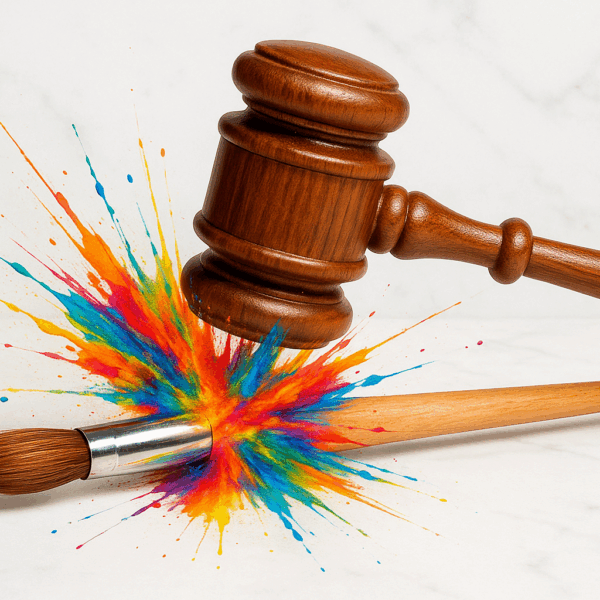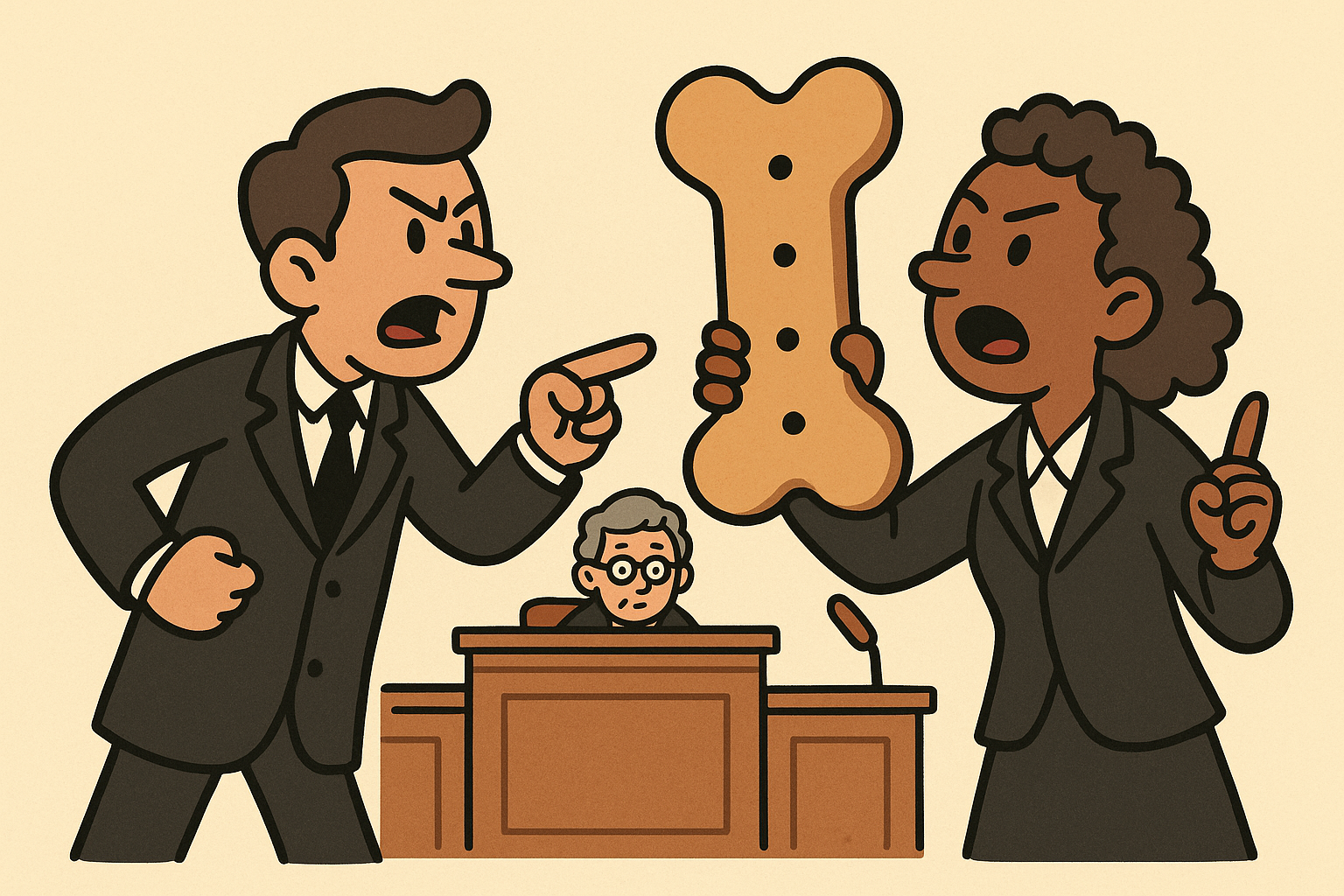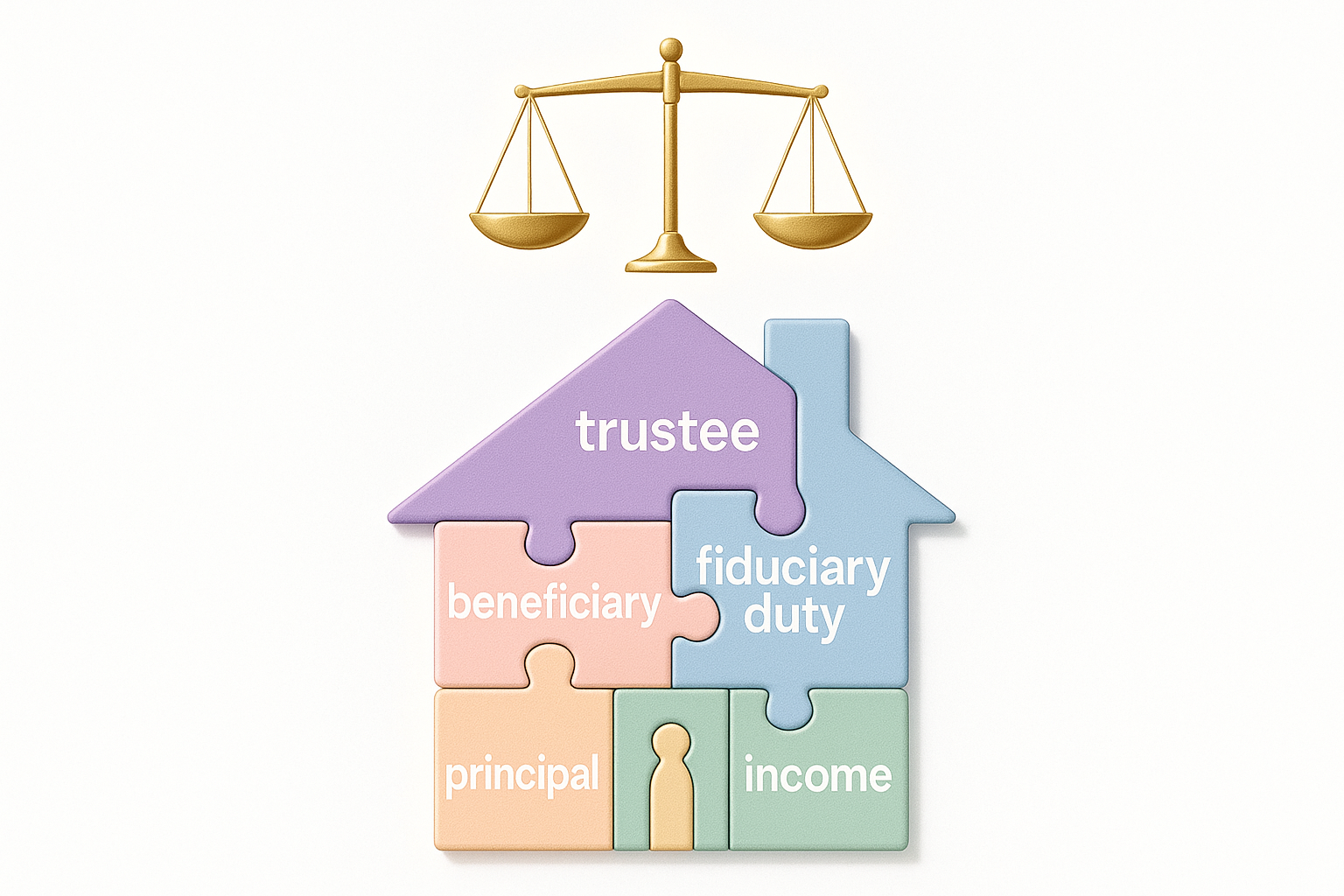
How the Supreme Court drew a bright line around personal names, political parody, and the future of brand ownership in Vidal v. Elster
“Trump Too Small”—An Idea Too Big for Registration
On a brisk D.C. morning in June 2024, nine justices considered a T‑shirt joke that had outgrown its cotton confines. The shirt read “TRUMP TOO SMALL,” a riff on a 2016 debate quip about the future president’s hand size. California lawyer Steve Elster wanted to own the phrase as a federal trademark. The U.S. Patent and Trademark Office (USPTO) said no—citing the Lanham Act’s “Names Clause,” which forbids registering a living person’s name without consent.
Elster claimed his political parody was protected speech and deserved the full power of ®. The Federal Circuit agreed. The Supreme Court did not. In a 9‑0 opinion, the Court resurrected the refusal and—more importantly—reaffirmed that you can speak the joke, print the joke, even sell the joke, but you can’t monopolize someone else’s name without permission.
Visual Case Brief
| Element | Key Points |
|---|---|
| Facts | Elster applies to register “TRUMP TOO SMALL” for apparel. USPTO refuses under § 2(c) (Names Clause) and § 2(a). |
| Issue | Does § 2(c), a content‑based but viewpoint‑neutral bar, violate the First Amendment when applied to political criticism? |
| Holding | No. The Names Clause is constitutional; refusal stands. |
| Majority (Thomas) | Deep historical tradition bars commercial control of another’s name; trademark registration is a government benefit, not a speech ban. |
| Concurrences | • Kavanaugh/Roberts: Would uphold even without history. • Barrett (partial + 3): Ask whether rule is “reasonable” to trademark system. • Sotomayor (+ 2): Trademark register is a limited‑purpose program—reasonable, neutral limits are fine. |
| Bottom Line | Using a living person’s name without consent remains an automatic § 2(c) refusal—even if your mark is a satirical slam. |
“A party has no First Amendment right to piggyback off the goodwill associated with someone else’s name.”
—Justice Clarence Thomas, writing for the Court
How We Got Here: The Trademark Trilogy
| Case | Year | Lanham Act Clause | Viewpoint Bias? | Outcome |
|---|---|---|---|---|
| Matal v. Tam | 2017 | “Disparagement” (§ 2(a)) | Yes | Struck down |
| Iancu v. Brunetti | 2019 | “Immoral/Scandalous” (§ 2(a)) | Yes | Struck down |
| Vidal v. Elster | 2024 | “Names Clause” (§ 2(c)) | No | Upheld |
Takeaway: The Court will nuke viewpoint‑based bans, but viewpoint‑neutral limits—rooted in consumer protection and identity rights—can survive.
By the Numbers: Section 2(c) in Practice
| Metric | 2021 Snapshot |
|---|---|
| Share of USPTO Office Actions citing § 2(c) | ≈ 2 % |
| Estimated § 2(c) refusals issued | ~ 4,000 |
| Presidential‑name refusals | ≈ 100 (roughly split between Biden‑Harris and Trump filings) |
Those refusals spanned everything from “BROCK LESNAR” energy drinks to “IAMGAWD” DJ services.*
Winners, Losers, and the IP Roadmap
Brand Owners & Public Figures
Win. Vidal v. Elster preserves a quick strike against freeloaders eager to monetize celebrity cachet. Expect continued policing of “critique‑as‑brand” filings, especially in political merchandise season.
Content Creators & Merch Sellers
Mixed. You can still print and sell the slogan—just without federal registration. That means weaker nationwide rights and higher litigation costs if you ever need to fend off copycats.
USPTO Examiners
Clarity. The decision slams the door on First Amendment challenges to § 2(c). Look for faster refusals and fewer examiner suspensions on name‑based applications.
Trademark Litigators
New Playbook. After Tam and Brunetti, many defense teams bet on “viewpoint discrimination.” Elster demands a pivot: the Names Clause is viewpoint‑neutral, so challengers must probe other angles—e.g., whether the name truly “identifies” a living person.
 What to Watch Next
What to Watch Next
-
Creative Work‑Arounds
Applicants may tweak spelling (e.g., “TRUM TOO SMOL”) or layer satire so thick the USPTO can’t confirm identity. Expect test cases probing when a name “identifies” someone. -
State‑Level Right‑of‑Publicity Suits
As AI voice‑cloning, NIL deals, and deepfakes proliferate, plaintiffs could pair § 2(c) refusals with state‑law claims, arguing broader control over personal identifiers. -
Congressional Noise
The ruling may cool legislative appetite for rewriting trademark speech limits, but bipartisan concern over counterfeit political merch could spark narrow tweaks.
Practical Tips for Counsel
| Scenario | Action Item |
|---|---|
| Political or Parody Merch | Budget for common‑law enforcement only; federal registration is off‑limits if a living name appears. |
| Celebrity Tie‑In Product | Secure written consent before filing—no workaround. |
| Brand Monitoring | Set USPTO watches for phonetic misspellings or visual puns of client names; challenge early. |
| AI Training Licenses | Explicitly address name and likeness in data‑set permissions to avoid § 2(c) landmines down the line. |
Final Thought
Vidal v. Elster didn’t shrink free speech; it resized the trademark toolbox. The opinion re‑centers trademark law on its oldest promise: help consumers know who really made that T‑shirt—and let the jokes fly free in the marketplace of ideas, unbranded but unbound.
Endnotes
-
Supreme Court Slip Opinion, Vidal v. Elster, 602 U.S. ___ (June 13 2024), No. 22‑704, at 12–14, 25–26. Supreme Court
-
Ronald Mann, “Supreme Court Rejects ‘Trump Too Small’ Trademark,” SCOTUSblog (June 13 2024). SCOTUSblog
-
Holland & Knight, “U.S. Supreme Court Upholds Constitutionality of Federal Trademark ‘Names Clause’” (Client Alert, June 25 2024). Holland & Knight
-
First Amendment Encyclopedia, “Vidal v. Elster (2024)” (Middle Tennessee State Univ., June 24 2024). The Free Speech Center
-
Greenberg Traurig, “Nothing 2(c) Here—SCOTUS Rules Trademark Act’s Prohibition … Plays Well with First Amendment” (June 17 2024). Greenberg Traurig
-
TM TKO Blog, “Trends in 2(c) Refusals” (Aug. 31 2021) (2% of Office Actions ≈ 4,000 refusals). TM TKO Blog
-
Politico, “Shirt Mocking the Size of Trump’s … Hands Cannot Be Trademarked, Supreme Court Rules” (June 13 2024). Politico
-
NatLaw Review, “SCOTUS Rules Trademark Act’s Prohibition on Registering a Living Individual’s Name Plays Well with First Amendment” (June 14 2024). National Law Review
Disclaimer: This article is for informational purposes only and does not constitute legal advice. Consult qualified counsel for specific guidance.








